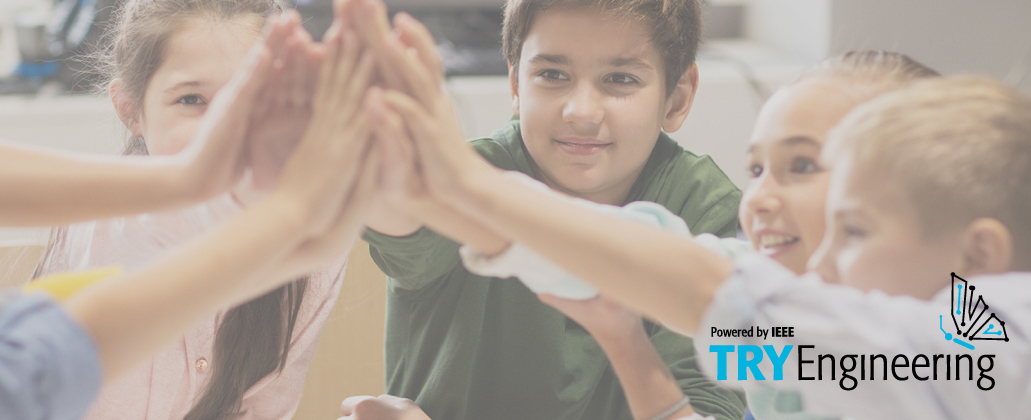Tryengineering.org lesson plans are now part of a University course thanks to Dušanka Bošković, an IEEE Region 8 member
Teacher In Service Program (TISP) is a well known program of IEEE Educational Activities where tryengineering.org lesson plans are demonstrated to educators all around the globe. It is mainly a train the trainer program where IEEE volunteers facilitate in-service programs for local teachers to help them introduce hands-on engineering lessons to their students.
Who would have thought that tryengineering.org lesson plans and Inquire Based Learning methodology is not only demonstrated to educators but it is now a part of a University course in the Pedagogy Faculty University of Sarajevo forming the future teachers in Bosnia and Herzegovina?
It is done thanks to IEEE volunteer Dušanka Bošković !
Region 8 Today presents to you a very interesting interview with her.
– May you please give as a mini bio of yours?
 I am an Assistant Professor at the Faculty of Electrical Engineering University of Sarajevo, at the Department of control and electronics. I am teaching biomedical engineering and human-machine interaction. In addition to teaching and research I have been engaged in several projects promoting accreditation activities to improve quality of engineering education in Bosnia and Herzegovina. I am also proud to be an active IEEE volunteer, and among other activities involved in organizing TISP workshops.
I am an Assistant Professor at the Faculty of Electrical Engineering University of Sarajevo, at the Department of control and electronics. I am teaching biomedical engineering and human-machine interaction. In addition to teaching and research I have been engaged in several projects promoting accreditation activities to improve quality of engineering education in Bosnia and Herzegovina. I am also proud to be an active IEEE volunteer, and among other activities involved in organizing TISP workshops.
– I’ve noticed that you implement tryengineering.com lesson plans to University Students. In which department and which course are these lesson plans implemented?
In addition to teaching at my Department I am also teaching Electronics at the Pedagogy Faculty University of Sarajevo, to future teachers of technical education in primary schools. My experience with the TISP activities inspired me to include tryengineering.org lesson plans in my curricula and to make my students familiar with tryengineering.org teaching resources.
– So you actually demonstrate the Inquiry Based Learning method that is proposed by IEEE Educational Activities through tryengineering.org, as a method for pre-university educators to teach electronics. And you demonstrate that to future educators in their obligatory courses. Is that correct?
Yes, it is correct, it is an obligatory course, and my students are future educators, they will work with kids in primary school and teach them different engineering fields, including electronics. It is very important in that age to raise children’s curiosity and to avoid too abstract and boring content. Practical work and the Inquiry Based Learning method proposed by IEEE Educational Activities are pedagogy patterns suited for this content and especially for the age.
– This is very exciting! How do they react to this? Do they like it?
They liked it very much, they have found the lesson plans motivating, the assignments easy to implement with affordable materials. A lot of ideas that can help them in their future job.
– Have you got any feedback that students of yours that got a job in a school, have used the method?
It is still early for a feedback, since I introduced the tryengineering lesson plans only two years ago.
– What do you think about inquiry based learning, is it easy to be implemented?
Learning through experiences make students actively participating and learning process is more successful. The key to successful inquiry based learning is to equip educators with good lesson plans. Lesson plans are providing the steps how to answer the questions, guiding learners to investigate and observe, to collect the evidence needed for answers. Personal experience of learners helps developing new knowledge and enables deep understanding. Learning about tryengineering and availability of excellent teaching materials offered was very important for my students. For example lesson plan for conductors and insulators is simple and easy to implement (http://tryengineering.org/lesson-plans/insulators-and-conductors), and demonstrating that pencil lead is a conductor opens a discussion on nanotechnology.
– What are the advantages and disadvantages of the method that IEEE proposes
As a promoter of learning through experiences methods, for me it is difficult to find disadvantages. Knowledge of English could be a barrier for some students, but with all translating assistance offered online, this can be easily solved.
– Thank you very much Dušanka, keep up the good work!
We look forward to see all this work being applied in kids classes and these lesson plans to be the motivation behind future engineers.

